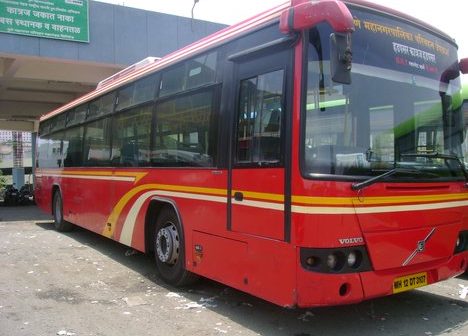India’s urban landscape is undergoing a silent revolution, with electric buses humming through the streets, replacing their diesel-guzzling counterparts. At the forefront of this e-mobility revolution are the twin cities of Pune and Pimpri Chinchwad, Maharashtra. Let’s delve into how these municipalities are leading the way in adopting electric buses for public transport, exploring the environmental, economic, and passenger comfort benefits they offer.
A Breath of Fresh Air:
Pune and Pimpri Chinchwad, like many Indian cities, have long grappled with air pollution, a significant public health concern. Diesel buses are major contributors to air pollution, emitting harmful pollutants like nitrogen oxides and particulate matter. By transitioning to electric buses, these cities are taking a crucial step towards cleaner air. Electric buses produce zero tailpipe emissions, significantly reducing air pollution in urban areas. This translates to improved respiratory health for residents, particularly those residing along busy public transport corridors.
Economic Power Surge:
The shift to electric buses isn’t just about environmental benefits; it holds significant economic advantages as well. Electric buses boast lower operational costs compared to their diesel counterparts. Electricity is generally cheaper than diesel fuel, leading to substantial savings for public transport authorities in the long run. Additionally, electric buses require less maintenance due to fewer moving parts, further reducing operational expenses. These cost savings can be channeled into expanding public transport networks, improving existing infrastructure, or lowering fares, making public transport more accessible for all.
A Quiet Ride to Comfort:
Electric buses offer a significantly more comfortable riding experience compared to diesel buses. They operate silently, eliminating the loud engine noise and vibrations that plague diesel buses. This creates a more peaceful and relaxing journey for passengers, especially during long commutes. Additionally, electric buses often come equipped with modern amenities like air conditioning, LED lighting, and comfortable seating, further enhancing the passenger experience and encouraging ridership on public transport.
Pune and Pimpri Chinchwad: Leading by Example:
Pune and Pimpri Chinchwad have emerged as frontrunners in India’s electric bus revolution. The Pune Metropolitan Region Development Authority (PMRDA) has been instrumental in driving this initiative. As of 2023, Pune boasts one of the largest fleets of electric buses in India, with over 400 electric buses deployed across the city. Pimpri Chinchwad is not far behind, with a growing fleet of electric buses catering to its residents.
The Electric Bus Fleet:
The electric buses deployed in Pune and Pimpri Chinchwad come in various models from leading manufacturers like Tata Motors, Ashok Leyland, and BYD India. These buses are typically low-floor or semi-low-floor designs, making them easily accessible for passengers of all abilities. They boast a range of 200-300 kilometers on a single charge, sufficient to cover most city routes. Additionally, these buses are equipped with fast-charging capabilities, allowing for rapid turnaround times between routes.
Charging Infrastructure: The Backbone of E-Mobility
The success of electric buses heavily relies on a robust charging infrastructure. Pune and Pimpri Chinchwad municipalities have recognized this and are actively installing electric bus charging stations at strategic locations across the cities. These charging stations utilize various technologies, including slow charging for overnight depots and fast charging for rapid turnaround times at designated stops.
Challenges and the Road Ahead:
Despite the significant progress, challenges remain. The initial cost of electric buses is higher compared to diesel buses. However, with economies of scale and government incentives, this cost gap is expected to narrow in the coming years. Additionally, expanding the charging infrastructure across the cities remains an ongoing effort.
A Brighter Future for Public Transport:
The adoption of electric buses by Pune and Pimpri Chinchwad municipalities showcases a commendable commitment to sustainable and efficient public transport. The environmental, economic, and passenger comfort benefits offered by electric buses pave the way for a cleaner, more cost-effective, and enjoyable public transport experience for all. As technology advances and infrastructure expands, electric buses are poised to become the mainstay of urban public transport in India, and Pune and Pimpri Chinchwad are leading the charge towards this greener future.





